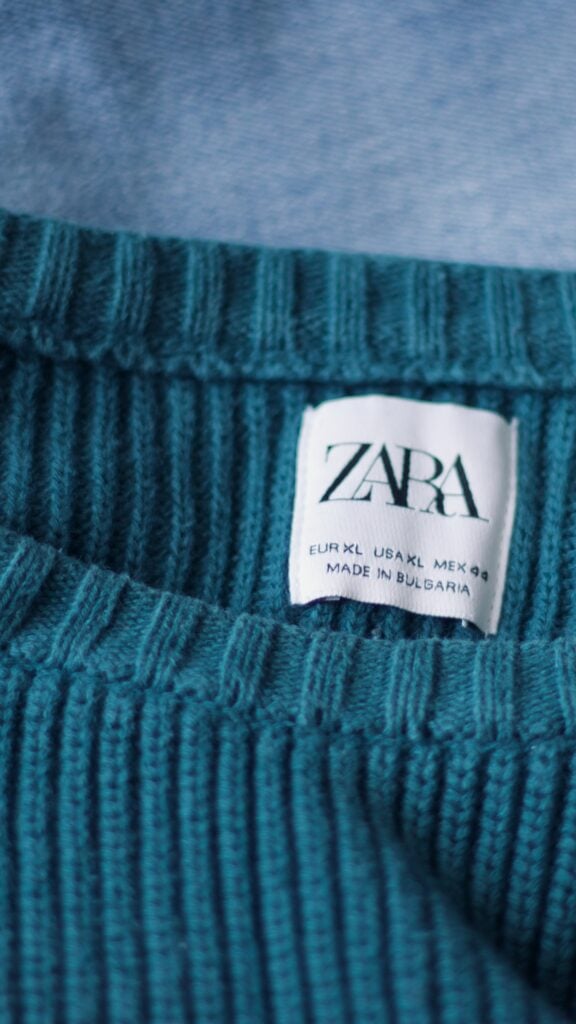

Is Zara Fast Fashion? Come Find Out!

As Seen On
When you think of Zara, what comes to mind? Trendy clothes, affordable prices, and the latest styles, perhaps? But have you ever wondered if there’s more to the story? As a pioneer in the fashion industry, Zara has been making waves with its seemingly endless array of fashionable garments.
With over $20 billion in annual sales, this fashion giant has mastered the art of luring us into their stores with twice-weekly drops of new lines that sell out in the blink of an eye.
But is Zara fast fashion? And if so, what does that mean for the environment and the people behind the clothes we love? This article explores the not-so-pretty truth about this fashion powerhouse and its impact on the world.

Is Zara Fast Fashion?
The short answer is yes, absolutely! Zara, a brand that generates over $20 billion in annual sales, has been a pioneer in the fast fashion industry, churning out thousands of designs every year and marketing super-stylish, fashion-forward clothes influenced by renowned designers’ collections.
However, this business model has a dark side, with significant environmental and ethical concerns.
The Environmental Impact
Zara’s desire to churn out thousands of designs a year directly translates into excessive water usage, energy usage, air pollution, and more. As one of the largest fashion retailers in the world, Zara has an opportunity to lead the way into a sustainable future.
However, it doesn’t matter how green the supply chain is if they continue producing more garments than they need. Fast fashion is responsible for 20% of global wastewater from textile dyeing needed to support the industry.
The Ethical Concerns
In the fast fashion industry, garment workers often receive unfair wages and work in poor conditions. Zara has made some pledges and commitments to sustainability over the past few years, such as ensuring that all hazardous chemicals would be removed from its operations by 2020 and releasing an “eco-friendly” collection called “Join Life”. However, these efforts may not offset the negative impacts of their fast fashion business model.
The Power of Consumers
As consumers, we have the power to change the world by being careful in what we buy and supporting more sustainable and ethical brands. Some ethical and cheap alternatives to Zara include Amour Vert, ABLE, and ARMEDANGELS. These brands focus on producing slow fashion, paying a living wage to workers, and using eco-friendly materials.
Frequently Asked Questions:
How many collections does Zara release every year?
Zara releases an incredible 24 trend-led collections every year, 500 designs a week, and almost 20,000 per year.
What are some ethical and cheap alternatives to Zara?
Some ethical and cheap alternatives to Zara include Amour Vert, ABLE, and ARMEDANGELS.
What is the environmental impact of fast fashion?
Fast fashion is responsible for 20% of global wastewater, which comes from textile dyeing needed to support the industry.
Bottom Line:
In conclusion, Zara is undoubtedly a fast fashion giant with significant environmental and ethical concerns. As consumers, we can make a difference by supporting more sustainable and ethical brands and being mindful of our shopping habits. By doing so, we can help create a more sustainable and ethical fashion industry for the future.
Konger
Up until working with Casey, we had only had poor to mediocre experiences outsourcing work to agencies. Casey & the team at CJ&CO are the exception to the rule.
Communication was beyond great, his understanding of our vision was phenomenal, and instead of needing babysitting like the other agencies we worked with, he was not only completely dependable but also gave us sound suggestions on how to get better results, at the risk of us not needing him for the initial job we requested (absolute gem).
This has truly been the first time we worked with someone outside of our business that quickly grasped our vision, and that I could completely forget about and would still deliver above expectations.
I honestly can't wait to work in many more projects together!
Disclaimer
*The information this blog provides is for general informational purposes only and is not intended as financial or professional advice. The information may not reflect current developments and may be changed or updated without notice. Any opinions expressed on this blog are the author’s own and do not necessarily reflect the views of the author’s employer or any other organization. You should not act or rely on any information contained in this blog without first seeking the advice of a professional. No representation or warranty, express or implied, is made as to the accuracy or completeness of the information contained in this blog. The author and affiliated parties assume no liability for any errors or omissions.

